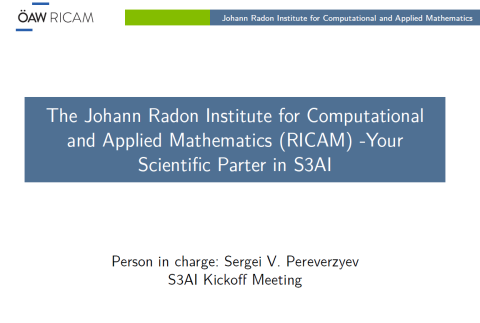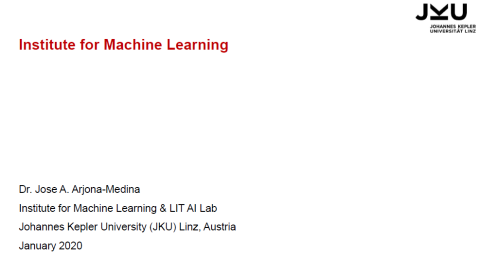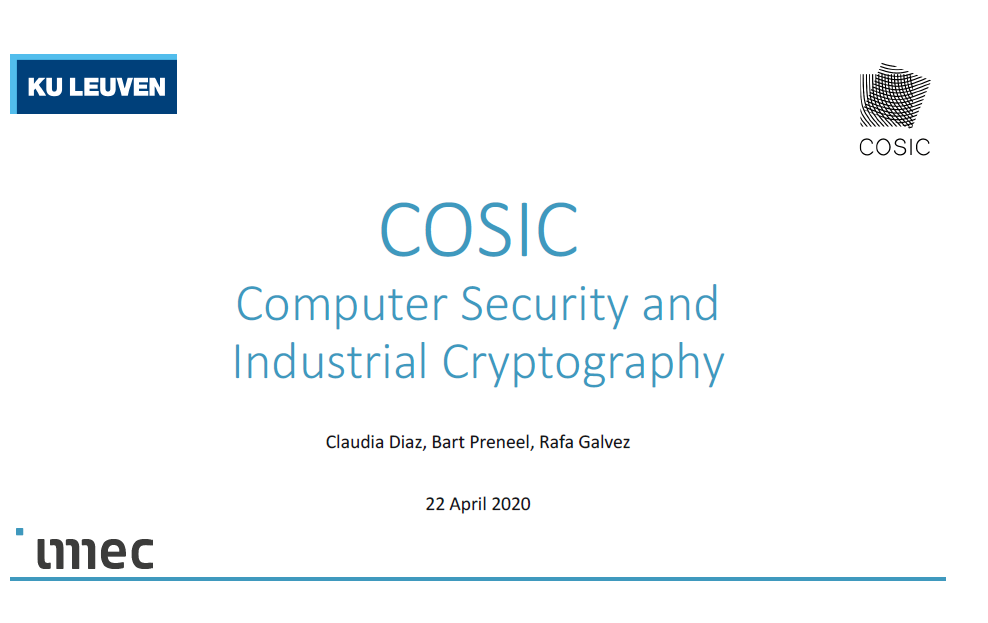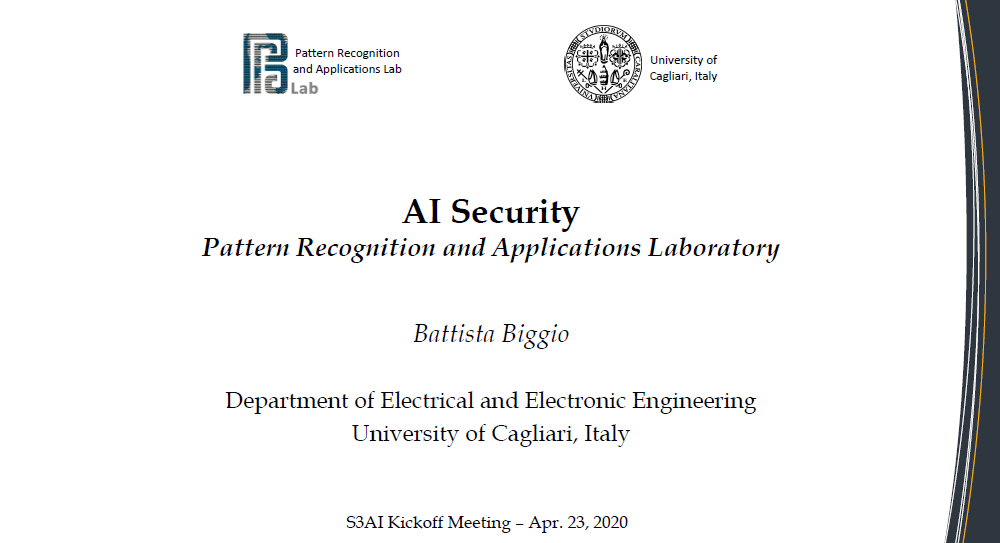Science Consortium
The scientific consortium, coordinated by SCCH, consists of three complementary buildings blocks, notably mathematics, deep learning and information security:
Mathematics:
- Radon Institute for Computational and Applied Mathematics (RICAM) of the Austrian Academy of Sciences by S. Pereverzyev and C. Koutschan;
- Research Institute of Symbolic Computation (RISC) at JKU by J. Schicho;
- SCCH by B. Moser
Deep Model Architectures:
- Institute for Machine Learning at JKU by S. Hochreiter and B. Nessler;
- SCCH by B. Moser and W. Zellinger (transfer learning)
Information Security:
- University of Cagliari by B. Biggio (defence against adversarial attacks);
- Computer Security and Industrial Cryptography (COSIC) at KU Leuven by B. Preneel and C. Diaz (privacy, confidentiality);
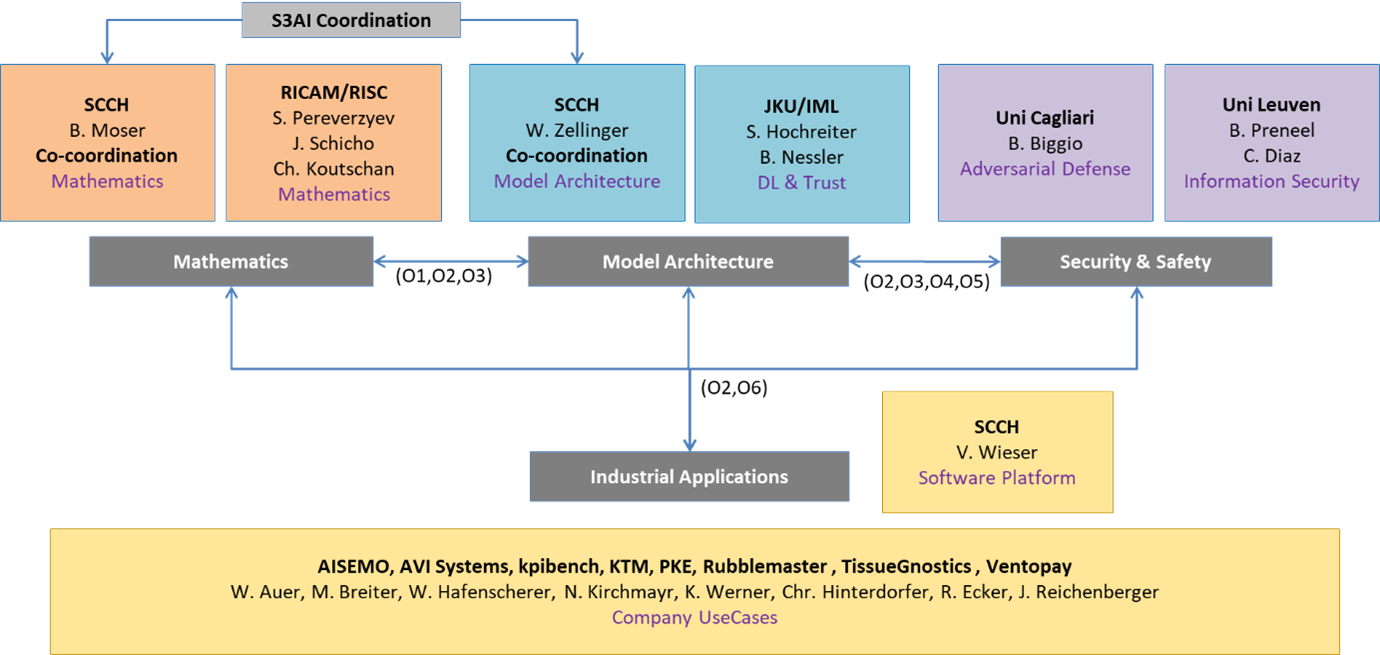
Software Competence Center Hagenberg (SCCH)
SCCH (www.scch.at) was founded in 1999 by the Johannes Kepler University Linz (JKU) as Austrian non-university RTO with focus on software and data science. SCCH participates in the Austrian COMET program und is driven by the ambition to turn cutting-edge research into industrial innovation together with its long term partners.
Currently, its interdisciplinary team of mathematicians, data and software scientists consists of about 80 researchers, among them more than 40 in AI. SCCH's main research focus is on software and AI system engineering, comprising:
Artificial Intelligence and Machine Learning:
- deep learning, GANs
- transfer learning
- knowledge graphs
- decentralized optimization
- human centered AI
Engineering and Workflows:
- software system engineering
- AI/ML system engineering
- functional and non-functional requirements
- quality assurance
Security and Safety:
- data owners in control of privacy
- privacy preserving machine learning
- software owners in control of IPR
- data and system integrity
for a range of application domains (with partners), among them
- mobility, e.g. predictive safety analytics in traffic
- manufacturing, e.g. predictive maintenance
- chemical industry, e.g. automated calibration by transfer learning
- healthcare. e.g., smart healthcare data center for personalized medicine
Reference Projects:
- H2020 TRESSPASS (behavioral analytics for border control)
- H2020 ALOHA (training engine for edge AI);
- H2020 SERUMS (privacy preserving machine learning for healthcare)
- H2020 COGNIPLANT (data-driven re-scheduling in smart production)
- H2020 TEAMING.AI (human AI teaming)
Radon Institute of Computational and Applied Mathematics (RICAM)
RICAM, https://www.ricam.oeaw.ac.at/, an institute of the Austrian Academy of Sciences, was founded in 2003 by Heinz W. Engl.
RICAM focuses on basic research in applied mathematics, and within the Institute mathematicians from all around the globe collaborate on common core areas in
- mathematical modeling,
- simulation,
- inverse problems, and
- optimization.
RICAM has proven to stand for excellence in research, as can be seen from a high level of publications and the popularity of the Institute's Special Semesters within the academic community. The working groups at RICAM provide a broad field of expertise over a whole range of different subjects, and together they create an exciting atmosphere to carry out research in applied mathematics.
Research Institute for Symbolic Computation (RISC)
RISC, https://risc.jku.at/, is an institute of the Johannes Kepler University (JKU) in Linz, Austria. RISC is part of the Department of Mathematics in the Faculty of Engineering and Natural Sciences (TNF) of the JKU. On the other hand, RISC is part of the Softwarepark Hagenberg, an innovative center for research, education, and industrial cooperations focussed on "Software" founded around 1990 by Bruno Buchberger, who is also the founding chairman of RISC.
The main site of RISC is the Bruno Buchberger Campus in the Softwarepark Hagenberg consisting of two main buildings, the medieval Castle of Hagenberg ("Schloss Hagenberg") and, since 2013, the RISC Extension Building near the pond. The Bruno Buchberger Campus hosts the permanent offices of all RISC members including the secretaries' office. When teaching at JKU, some RISC members may also be found in the non-permanent RISC offices in the Science Park at the JKU campus.
RISC is renown for Symbolic Computation comprising
- computer algebra,
- computer logic, and
- mathematical software
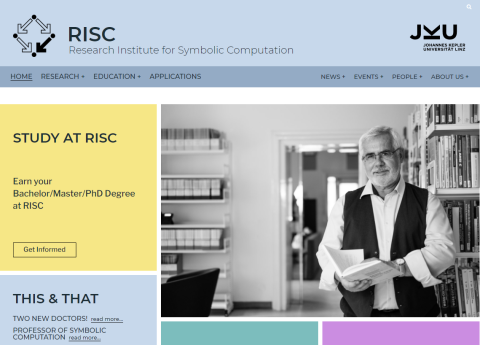
Institute for Machine Learning (IML)
IML, https://www.jku.at/en/institute-for-machine-learning/, headed by the Deep Learning pioneer S. Hochreiter, conducts internationally renowned research and provides profound education in machine learning.
Its research focuses on development and application of machine learning and statistical methods, comprising:
- Artificial Intelligence
- Machine Learning
- Deep Learning
- Long Short-Term Memory
- Reinforcement Learning
- Vision
- Representational Learning
- Natural Language Processing (NLP)
- Bioinformatics (Genetics, Genomics)
The Computer Security and Industrial Cryptography (COSIC)
The COSIC research group, https://www.esat.kuleuven.be/cosic/, headed by Bart Preneel, is part of the Department of Electrical Engineering at KU Leuven and was founded in 1979. Currently COSIC has 7 professors, 6 members of support staff, 8 research experts/managers and over 60 researchers. During the last 15 years, COSIC obtained more than 1200 international reviewed publications in journals and conferences, 13 edited books, 10 patents and has graduated over 60 PhD students. COSIC focuses on the protection of digital information. Our group develops advanced cybersecurity solutions to protect data in the cloud and in the Internet of Things (IoT), and to protect the privacy of users, comprising
- Symmetric Key Cryptography
- Public Key and Protocols Team
- Embedded Systems and Hardware Security Team
- Privacy and Identity Management
- Mobile and Wireless Security
COSIC has participated in 50+ European research projects (inc. 2 ERCs) through which it gained thorough experience in privacy-enhancing technologies, identity management, and design and analysis of cryptographic algorithms, protocols and architectures.
COSIC applies this knowledge to create security mechanisms for embedded systems and to build architectures that offer “security-by-design” and “privacy-by-design”. This work leads to privacy-friendly techniques for user authentication including biometrics. Application fields that are studied include road-pricing, implantable medical devices, smart cars, smart grids and smart cities. In the area of privacy, our team has developed solutions for anonymous communications and for the detection of covert user tracking. In the area of blockchain, we are developing privacy-friendly logging techniques and we are studying the stability and efficiency of cryptocurrencies.
Pattern Recognition and Applications Lab (PRA Lab) at University of Cagliari (Italy)
The PRA Lab, https://pralab.diee.unica.it/, founded 1996 and headed by Fabio Roli is part of the Department of Electrical and Electronic Engineering of the University of Cagliari in Sardinia. The PRA Lab is made up of about 30 people, including faculty members, post-doc researchers, PhD students and lab fellows.
PRA Lab's mission is the development of solid theories tailored to solve practical and real problems with focus on “Secure systems for security applications”, comprising
- Adversarial Machine Learning
- Biometric Recognition
- Computer Security
- Machine Learning for Pattern Recognition
- Multimedia Classification and Retrieval
- Multiple Classifier Systems
- Video Surveillance and Ambient Intelligence
